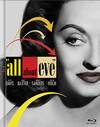'Casablanca':
Film of Intrigue and Adventure
The Times (London), January 13, 1943 page 6
Casablanca in the days before the allied occupation had obvious possibilities
as the background of a film of intrigue and adventure, and the film which
goes into the Regal and Warner cinemas next Friday has taken at least a
reasonable percentage of its opportunities.
The place is given an elaborate setting. Money is plentiful, time
is meaningless, life is cheap. French, German, Italian, American and native
rub uneasy shoulders and no man is to be trusted. Meanwhile the café
lights are brilliant, negroes strum at the pianos, and the camera, lingering
over the decorative and the exotic, seems to be waiting for Miss Marlene
Dietrich. Actually Miss Ingrid
Bergman, a very different type, is the heroine of a story which seeks--
at times successfully-- to avoid the commonplace by the laconic manner
of its expression. She is the wife of one of the leaders of the underground
movement against the Nazis, but she has the misfortune to be in love with
Mr. Humphrey Bogart, who, as
the owner of a night club, gives his usual deliberately flat performance
of the sentimentalist masquerading as the cynic.
The incidentals of the film, however, are to be preferred to the
main issue of visas, arrests, and escapes. Mr. Claude
Rains, self-described as "a poor, corrupt official," slightly
overplays his hand as a French chief of police, but Mr. Peter
Lorre disappears all too soon from his scene, Mr. Sydney Greenstreet,
fat, jovial, and utterly unscrupulous, has too small a part, Mr. Dooley
Wilson's performance as a negro pianist is memorable, and at moments Casablanca
seem genuinely to be trying to give expression to the emotions of those
colonial French who were left bewildered by the fall of their country but
did not lose their faith.
© 1943 The Times
|






![]() Printer-friendly version.
Printer-friendly version.
![]() Return
to the top.
Return
to the top.








